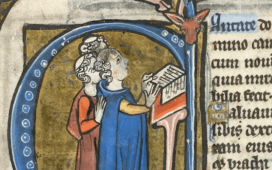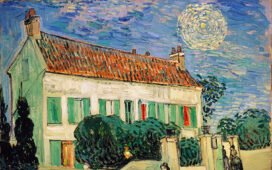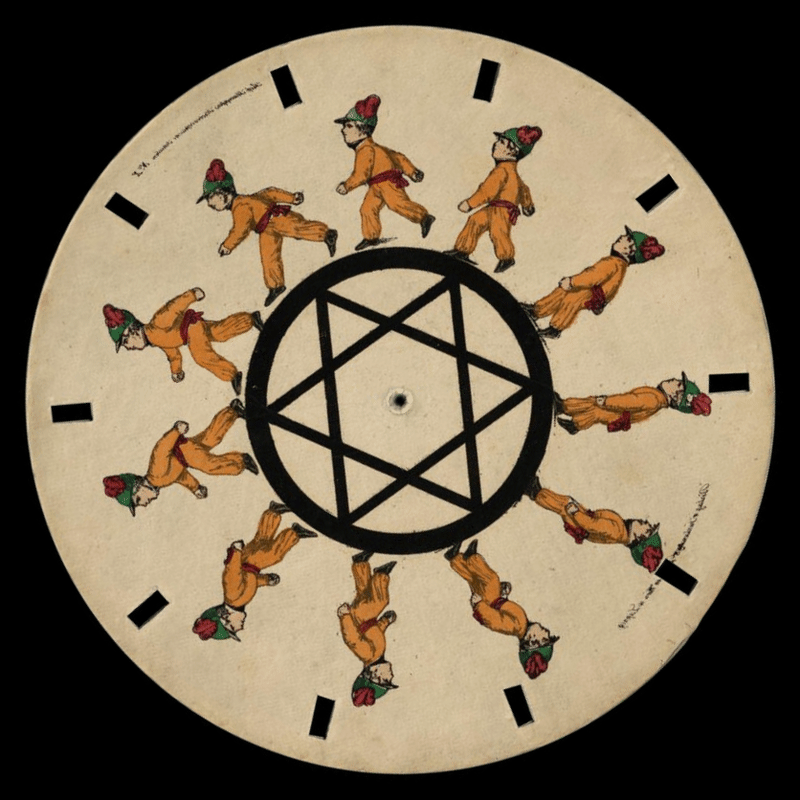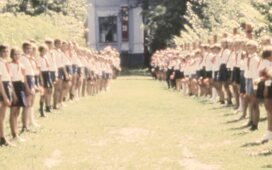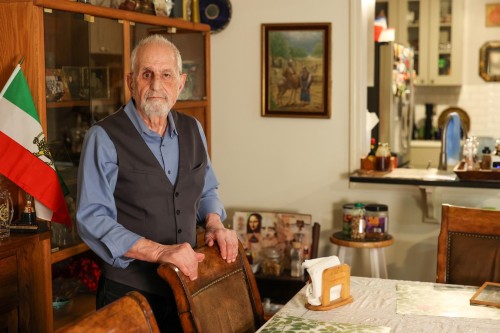
(50/54) “When I was eighty I was giving an interview on Persian television. I wanted to recite a verse, from the part of Shahnameh when Rostam selects Rakhsh as his horse. But no matter how hard I tried, I could not remember the line. For almost a minute I sat still. After that I stopped giving speeches. I’m at a new stage now. I’ve accepted this. It’s like an arrow that’s descending. It’s been a long flight. But it’s nearly reached its destination. I’ve done all I can. So now I try to think through the soul of our people. It’s in the hands of the young people now. They’re the ones with energy. They’re the ones that can change the regime. In the great battles of Shahnameh, as long as the flag is flying high, the army remains strong. The flag must stay raised. When the flag falls, the battle is lost. The flag of this regime is the hijab. For as long as I can remember. For my entire life, it’s the thing they’ve cared about most. It’s something that can be visualized. Something that can be seen from afar. No matter how low they sink, no matter how weak they are, it’s the one proof that they’re still in control. That they still control half of Iran. They’ve made it their flag. But their castle is surrounded. The flag is falling fast. And when it finally hits the ground, the regime will end. Mitra and I do whatever we can to support. We go to the protests. She wears her ‘Woman, Life, Freedom’ hat. She doesn’t remember the exact dates, or the exact events. But she can feel it in the air. She knows something’s coming. She brought home two Mahsa Jina Amini T-shirts from one of the protests. She hung one in our living room, and the other in our bedroom. I can not fight it, her word is law. Lately she has become obsessed with the idea of going back to Iran. She thinks we’re going home. She’s always saying: Where are we going to live? Who are we going to see? It’s not a delusion. The hope is inside her. And is inside of me too. I still hope that I will live to see it. The new Iran. Just a glimpse would be enough for me. As Ferdowsi writes: ‘Even a few drops sipped at the end of evil, is worth more than all the years of life.”
در هشتادسالگی در رسانهای فارسیزبان سخن میگفتم. میخواستم بِیتی از شاهنامه را بخوانم، زمانی که رستم رخش را برمیگزیند؛ نتوانستم آن بیت را به یاد آورم. نزدیک به یک دقیقه خاموش بودم. پس از آن، سخنرانی و مصاحبه را کنار گذاشتم. اکنون در دوران تازهای هستم. این را پذیرفتهام. مانند تیریست که از کمان رها شده و در حال فرود آمدن است. پروازی درازآهنگ بوده و کمابیش به هدف رسیده است. آنچه را در توانم بوده انجام دادهام. در تلاشم تا با جان و روان مردممان بیامیزم. اکنون همه چیز در دست جوانان است. نیرومندان دلیر. آنان میتوانند رژیم را براندازند. در بزرگترین نبردهای شاهنامه، تا زمانی که درفش افراشته باشد، سپاه نیرومند و استوار میماند. درفش باید برافراشته بماند. درفش بر زمین افتاده، نشان آشکار شکست است. درفش این رژیم حجاب است، تا یاد دارم چنین بوده است. تا بتوانند از آن نمی گذرند. دیدنیست. نمادیست که از دوردست پیداست. هر اندازه هم در حال غرق شدن باشند، هر اندازه هم ناتوان شده باشند، این نماد نمایش بودن آنهاست. می پندارند که نیمی از ایرانیان را زیر فرمان دارند. آن را درفش خود کردهاند. روز نبرد فرا رسیده است. کاخشان محاصره شده است. درفش با شتاب در حال افتادن است. هنگامی که سرانجام بر زمین افتد، رژیم نابود خواهد شد. من و میترا به تظاهرات میرویم. او همواره کلاه «زن، زندگی، آزادی»اش را بر سر دارد. شاید تاریخها و مناسبتها را دقیق به یاد نیاورد اما هوای دگرگونی را احساس میکند. دو پیراهن با چهرهی زیبای مهسا ژینا امینی را از تظاهراتی به خانه آورد. یکی را بر دیوار اتاق نشیمن آویخت و دیگری را بر دیوار اتاقمان. و من با او اختلافی ندارم زیرا که سخن او قانون است. تازگی حسی نیرومند برای برگشتن به خانه و میهن دارد. همواره میپرسد: “کجا زندگی خواهیم کرد؟ چه کسانی را خواهیم دید؟ به دیدن چه جاهایی خواهیم رفت؟” این خیال نیست؛ امید در درون او شعلهور شده است و همچنین در جان من. امیدوارم که تا آن روز زنده بمانیم. فردوسی میگوید: دَمی آب خوردن پسِ بدسَگال / به از عُمرِ هفتاد و هشتاد سال


